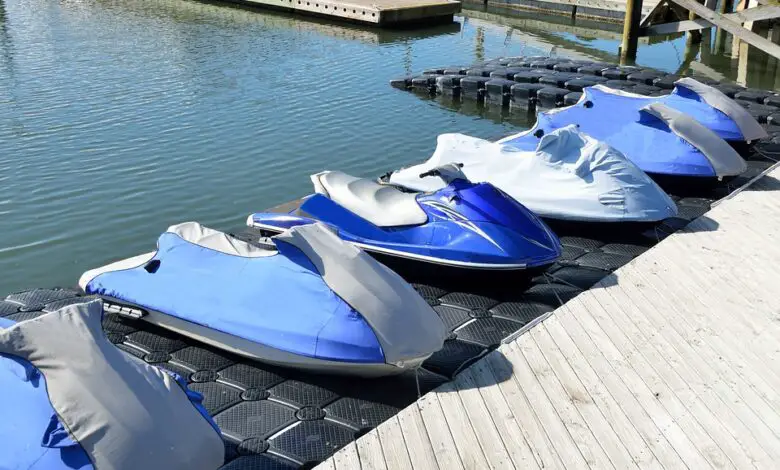6 Tips For Starting a Jet Ski Rental Business

Are you planning on starting a tourism business? A jet ski rental business would be a good option. Rental businesses, if well thought out and managed are very profitable and ideal for entrepreneurs who do not want to deal with the challenges associated with manufacturing goods, for instance.
Putting up a jet ski rental business may seem quite an easy venture at first. This is because you just need an attractive coastal location, some quality jet skis, and knowledge on how jet skis are maintained and operated. However, like any other business, a jet ski rental business comes with its own challenges that you need to overcome to keep your business running.
Below, we are going to give you some tips on how to kick start a profitable jet ski rental business. So if you are interested, keep on reading!

1. Consider the Location
The location is a crucial aspect when starting any water rental business. Not all water bodies are suitable for jet skiing. Understand the location’s potential by exploring its geographical location. Choose areas that attract tourists and where watersports are in great demand. But before investing in any location, make sure that you familiarize yourself with the environmental, local, and regional regulations.
2. Analyze the Competition
The second most important thing to ensure that your business will survive in the future is to analyze your competitors prior to starting your business. You can visit each of your competitors and analyze their strengths and weaknesses. Know what they are doing that makes customers go to them.
With proper analysis, you can generate a clear plan of action, find ways to mitigate the weaknesses to avoid their pitfalls. Moreover, by having the right information, you can get crafty and improve on their strengths to make sure that your startup has an edge over your competitors.
3. Get the Right Insurance
Accidents cannot be avoided in a jet ski business, so it is a must that you get a good insurance plan that covers all of your equipment and your employees when they will be operating them. Running such a high risk business without the right cover is a recipe for failure as it may expose you to claims and lawsuits that may run it to the ground. Below are a few of the insurance policies you have to consider for your start-up business:
- Collision damage waiver
- Worker’s compensation
- Personal effects coverage
- Personal accident insurance
- Liability insurance
The trick to picking the right insurer is to talk to multiple providers and gauge their benefits versus your premiums. Also, it would be wise to get a few reviews from people or businesses currently using the services. This way, you will be able to make an informed choice on the best insurance provider for your needs.
4. Get the Required Permits & Licenses
A jet ski rental business demands certain licenses and permissions which will depend on the area you are putting up your business in. You need to get the required permits so that you can start operating your jet ski rental business. Aside from a business license, you also need regional and municipal permits. Register your business so you will know the required licenses.
You also need to choose a business structure like Partnership, Corporation, or Sole Proprietor. Here is an article you can read to get an idea of the costs of getting a license for your jet ski business. You could also check the local laws in the area you wish to have your startup for any additional costs or regulations.
5. Consider Overhead Costs
There are 3 main costs involved in starting a jet ski rental business:
❖ Maintenance
The extent of maintenance services you will be doing will depend on the durability of the jet skis you will be using for your business. You should procure jet skis from reliable brands like Kawasaki, Seadoo, and Yamaha.
❖ Fuel
Although you can include fuel in your total rental charges, fuel prices are always fluctuating. Make sure to factor out fuel costs when deciding for your rental fees.
❖ Storage
You need to have a storage area for your jet skis when they are not in use. You can store them inside a fenced facility with a gate. However, spaces near waterways can be costly, so you need to include this in your initial expenses.

You might also want to install a jet ski lift which you can view here: http://www.hiseadock.com/waterfront_solutions/jet-ski-dock/ to make docking easier and more convenient for your customers.
6. Create a Marketing Plan
If you want your business to grow and make profits, you need a good marketing strategy. John Flow, a business analyst, startup expert and LLC.Services service owner noted the need for a marketing strategy, explaining that a well-thought-out marketing strategy will help you identify clear, realistic marketing goals for your business and give it the necessary growth. Marketing is a very important aspect of any business. It makes sure that your services are advertised outside your neighborhood to boost your sales. Below are 3 effective marketing strategies you can follow:
❖ Show your business’ highlights to your customers
Aside from covering the essentials such as jet ski types for rent, times, prices, availability, and others, you can include the following:
- Vista points they can paddle to
- Wildlife types that they can spot
- Recommended dockside cafes
- Hidden coves and swilling holes they can explore
❖ Ask For Reviews
Reviews can make or break your business so you should increase your positive reviews. In this modern time, people trust online reviews more than personal recommendations. You can feature excellent reviews on your website and newsletters. Take advantage of Instagram and Facebook to share good customer feedback.

Conclusion
Jet ski rental businesses are highly profitable, but your business’ success will always depend on your knowledge along with an effective business plan. Though putting up a jet ski rental business can be expensive at first, you can achieve a high return on investment if you have planned your business properly. Take note that marketing has a huge impact on profit generation because they drive more customers to your business.
